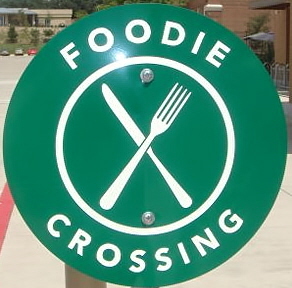Archive for February, 2012
What is an –ology? Posted by Gabriele on Feb 20, 2012
Yesterday I discussed the suffix –ism and a number of different nouns that end with this suffix. A similar, but not identical, suffix is –ology. So, what is an –ology? The suffix –ology is added to a noun to denote that this is a subject of study or a branch of knowledge. Most words that…
What is an –ism? Posted by Gabriele on Feb 19, 2012
–ism is a suffix added to the end of a word to indicate that the word represents a specific practice, system, or philosophy. Often these practices, systems, or philosophies are political ideologies or artistic movements. Using –ism at the end of a word also suggests the word is related to a belief (or system of…
It’s or Its? Posted by heather on Feb 18, 2012
If you spend a decent amount of time on Facebook, then you may have seen some of the posts about grammar that tend to make the rounds. Often these posts are sentences that highlight a regularly misused or misunderstood word, punctuation mark or grammar rule. For example, “Let’s eat Grandpa! vs Let’s eat, Grandpa! (Commas, they save…
Little Debbie Snacks Posted by Gabriele on Feb 17, 2012
Most children in the United States eat their lunches at school everyday, this is opposed to children around the world who go home for lunch and then either stay at home because their school day is over or return to school for more instruction after lunch. Because children in the United States eat their lunch…
Foodie Time Posted by Gabriele on Feb 16, 2012
I have a confession* to make: I am a “foodie.” This is one reason you will see me post information about food, generally “American” food, and recipes periodically on this blog. I love food and all things food related! In fact that is the definition of a foodie. A foodie is a person who wants…
Happy Valentine’s Day Posted by Gabriele on Feb 14, 2012
Today, February 14th, is celebrated as Saint Valentine’s Day in the United States. Saint Valentine’s Day, more often simply referred to as ‘Valentine’s Day’, is a holiday celebrating love and affection between romantic couples. This holiday has its origins in Christianity, though today it is a holiday celebrated by people of all religions in the…
Gerunds: What Are They and How Can You Identify Them? Posted by Gabriele on Feb 13, 2012
Simply put, a gerund is a noun formed by taking a base verb and adding the suffix* –ing. Gerunds are very easy to make: you just add –ing to the base form of a verb, for example: give + ing = giving. It is important to remember though that gerunds aren’t verbs; they are nouns. …





